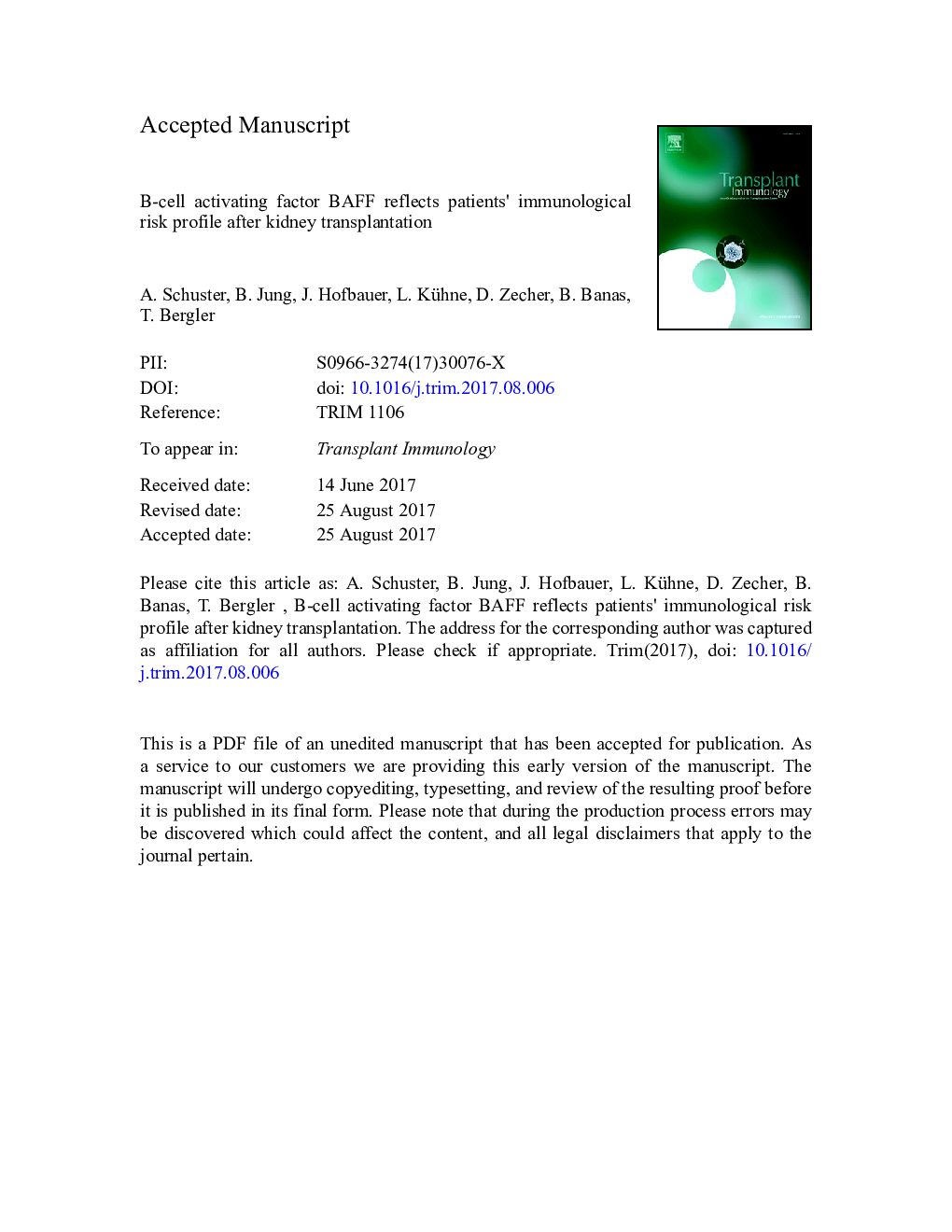| Article ID | Journal | Published Year | Pages | File Type |
|---|---|---|---|---|
| 8743821 | Transplant Immunology | 2017 | 37 Pages |
Abstract
Pre-sensitized patients had significantly higher BAFF levels before transplantation and suffered significantly more often from early steroid-resistant, mainly antibody-mediated rejections. A result which was confirmed also in highly sensitized patients with PRA levels >Â 50%. Additionally, in the follow-up patients with either rising BAFF levels over time or BAFF levels above the median also had significantly more often antibody mediated rejections. Additionally, patients with BAFF levels above detected median even displayed impaired creatinine values as well as an induced eGFR slope up to month 48 after transplantation. The occurrence of viral infections (CMV, BKV) was only an additional influencing factor in the absence of concomitant allograft rejections. Therefore, the B-cell proliferation factor BAFF appears not only to reflect the immunological risk profile of patients in the context of kidney transplantation, it may possibly be further developed as a predictor of patients with an increased risk profile for subsequent allograft rejection and impaired allograft function.
Keywords
Related Topics
Life Sciences
Immunology and Microbiology
Immunology
Authors
Schuster A., Jung B., Hofbauer J., Kühne L., Zecher D., Banas B., Bergler T.,
